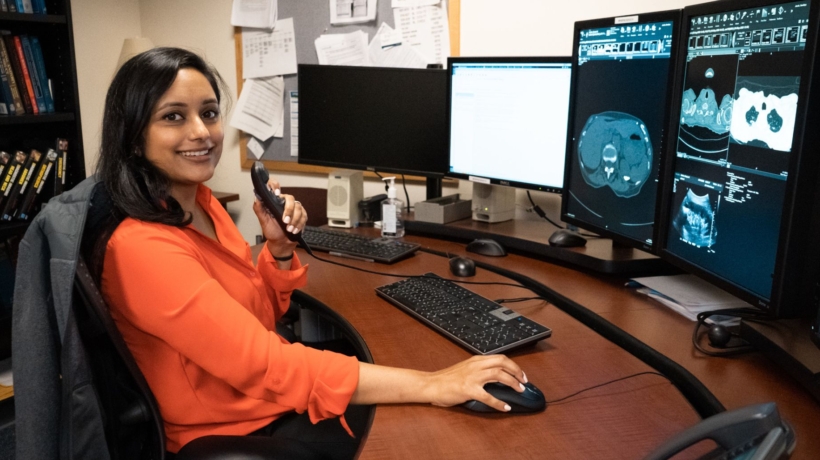What Does It Take to Become a Radiologist?

Becoming a radiologist requires an extraordinary level of dedication, education, and training. Radiologists are medical doctors who specialize in interpreting imaging studies like X-rays, CT scans, MRIs, and ultrasounds to diagnose and guide treatment for various conditions. Here’s what their journey entails:
- Undergraduate Education: Radiologists begin with a four-year undergraduate degree, often emphasizing pre-medical coursework in biology, chemistry, and physics.
- Medical School: They then complete four years of medical school, mastering the fundamentals of anatomy, pathology, pharmacology, and patient care.
- Residency Training: Following medical school, radiologists enter a four-year residency in diagnostic radiology, where they learn to interpret medical images, perform imaging-guided procedures, and provide accurate diagnoses. This rigorous training covers all imaging modalities, from X-rays to advanced techniques like MRI and PET/CT scans.
After completing their residency, radiologists become board-certified, signifying their expertise in general diagnostic radiology.
The Path to Sub-Specialization
While general radiology provides a strong foundation, some radiologists choose to further specialize by pursuing fellowship training in a particular area of radiology. This additional one- to two-year training allows radiologists to develop advanced expertise in specific fields, such as:
- Musculoskeletal Radiology: These specialists interpret imaging of bones, joints, and soft tissues, aiding in the diagnosis and treatment of fractures, arthritis, and sports injuries. Their expertise is crucial for guiding orthopedic surgeons in treatment planning.
- Breast Imaging: Focused on mammography, breast MRI, and ultrasound, breast imaging specialists play a vital role in early breast cancer detection and prevention.
- Neuroradiology: Neuroradiologists focus on conditions of the brain, spine, and nervous system, using advanced techniques like MRI and CT to diagnose strokes, tumors, and degenerative diseases.
- Interventional Radiology (IR): This sub-specialty focuses on minimally invasive procedures guided by imaging. Interventional radiologists treat conditions like uterine fibroids, varicose veins, and vascular blockages using advanced techniques that reduce the need for open surgery. At TRA Medical Imaging, our IR team performs cutting-edge treatments such as embolization, tumor ablation, and targeted drug delivery.
- Neurointerventional Surgery: These specialists focus on imaging-guided treatments for conditions affecting the brain and spinal cord, such as stroke, aneurysms, and arteriovenous malformations (AVMs). Neurointerventional radiologists at TRA use highly precise techniques, like mechanical thrombectomy, to restore blood flow during a stroke, improving outcomes and saving lives.
- Nuclear Medicine and Theranostics: Nuclear medicine radiologists specialize in advanced imaging techniques, such as PET/CT scans, to detect and treat conditions at the molecular level. They also lead the field in theranostics, which combines diagnostics and therapy in one procedure. For example, they use radiopharmaceuticals like Lutetium-177 to target and treat advanced prostate cancer or neuroendocrine tumors, providing personalized care for complex cases.
Benefits of Local Sub-Specialized Radiology
At TRA Medical Imaging, patients have access to sub-specialized radiologists across a wide range of fields, ensuring they receive the most advanced care without leaving their community. Whether it’s detecting subtle brain abnormalities with neuroradiology, or providing early cancer detection and treatment options through nuclear medicine and theranostics, TRA radiologists work collaboratively with healthcare providers to deliver integrated, personalized care. For patients, this means:
- Timely diagnoses: Faster access to critical information, reducing delays in treatment.
- Enhanced outcomes: Precision imaging leads to better treatment decisions and improved recovery.
- Convenience and trust: World-class care, close to home, minimizes travel and reduces stress.
Transforming Lives Through Expertise
At TRA Medical Imaging, our sub-specialized radiologists combine decades of experience, advanced technology, and a passion for excellence to provide patients with the highest standard of care. Whether it’s diagnosing a life-threatening condition, guiding a complex procedure, or delivering targeted therapies, our team is dedicated to improving lives and empowering healthier communities.
TRA Medical Imaging: Where Expertise Meets Compassion—Close to Home.
Learn more about the Interventional Radiology procedures we offer at TRA Endovascular.
